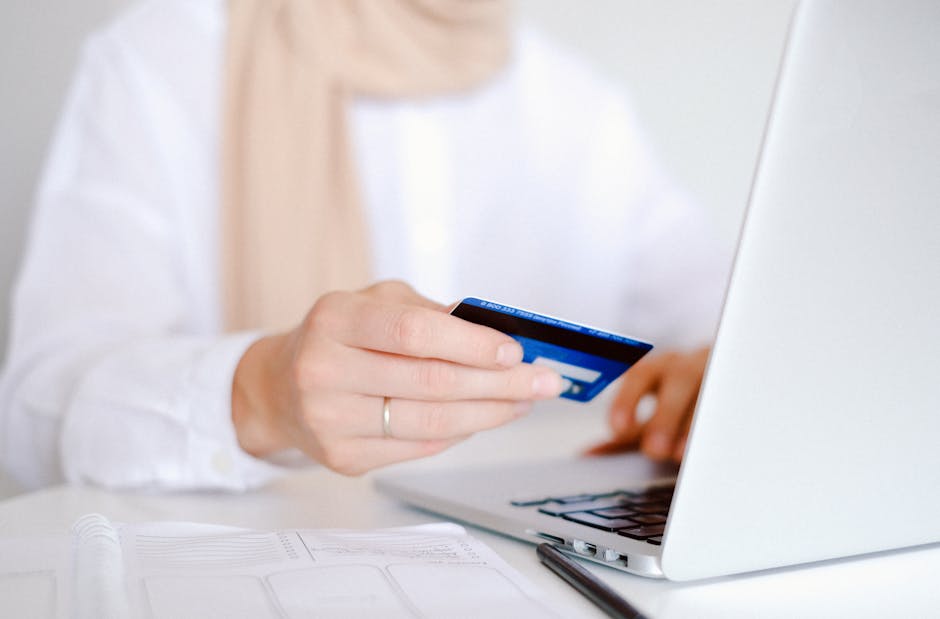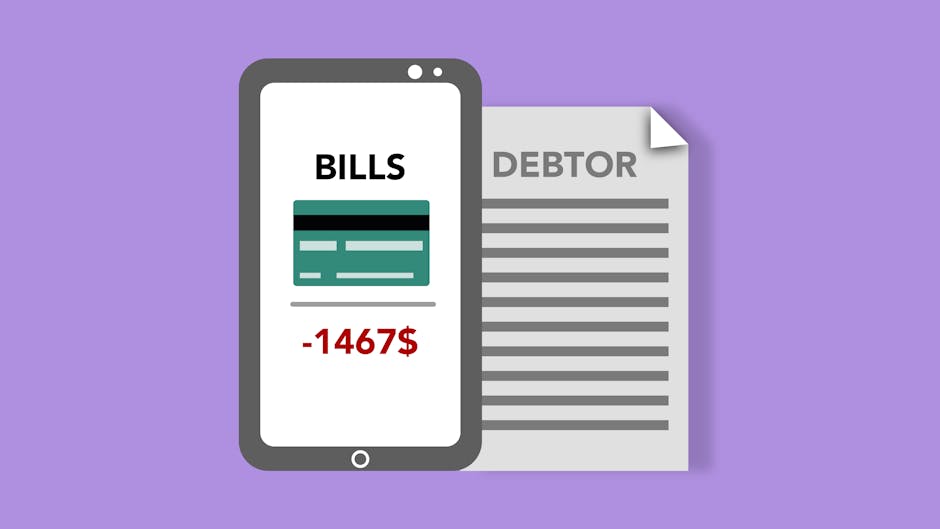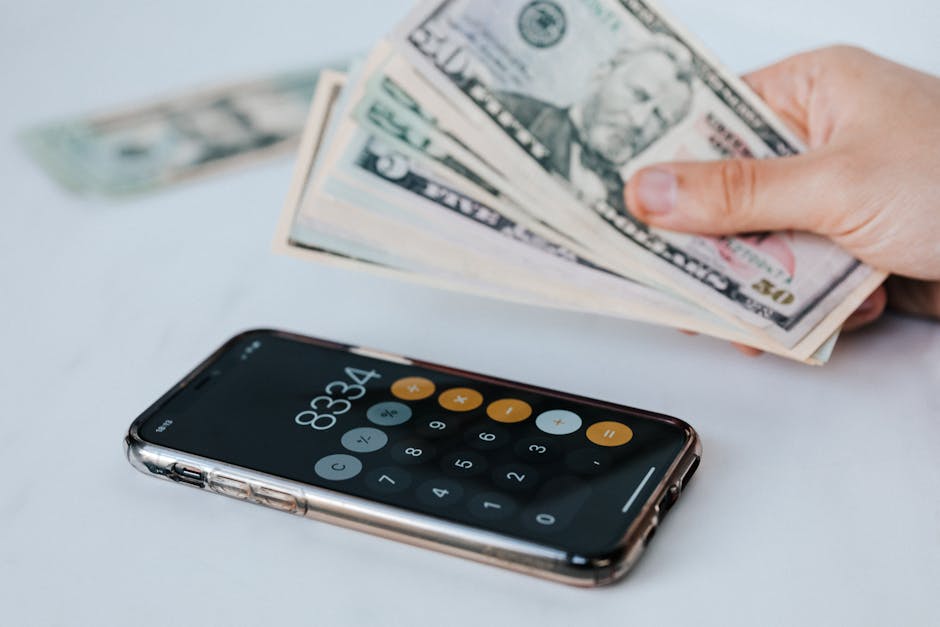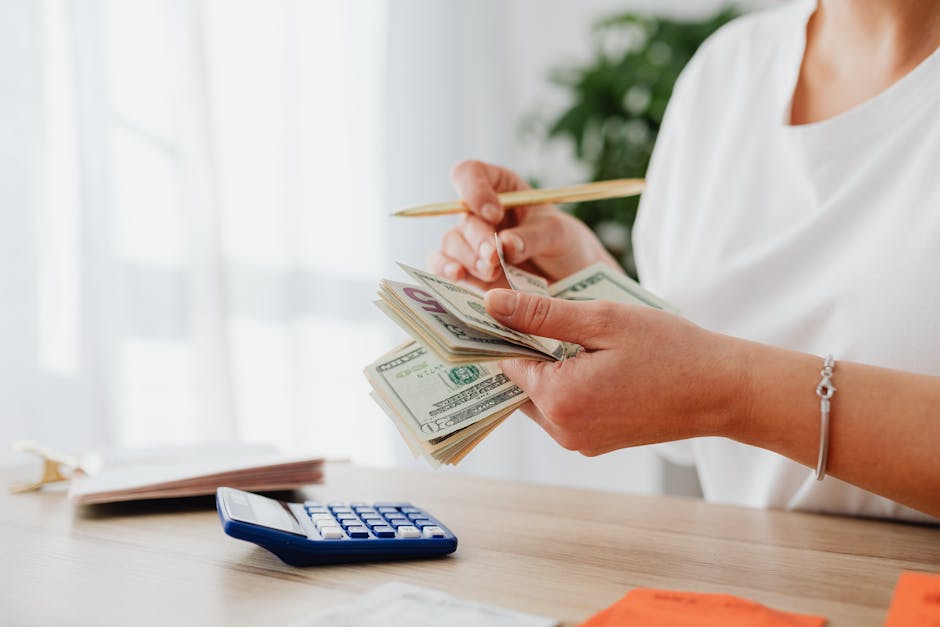Get your own credit card

Photo by Anna Shvets on Pexels
Once you have paid off all of your debts, it is time to start building a good credit history. People build an excellent credit score by staying in debt but only paying what they can afford.
Your monthly spending should be no more than 30% of your income. Also, pay some money towards a retirement savings account. These are often mandatory for young people, so if you don’t need them, it could put others in life into debt.
You can get rid of old things by selling items you haven’t used in years at a garage sale or by setting up a website and listing items for purchase. By doing this, you are responsible for spending money and always looking forward to having another fun payday.
Payments matter more, and companies now offer ways to make payments easily and quickly. This means less time spent earning money and putting everything back out again!
Pay your credit card debt

Photo by Monstera on Pexels
If you are struggling to manage your credit card balance, then it’s important that you pay off your debt before raising any new credit cards.
Living with no money down is difficult when all of your income goes towards paying off your debt.
Furthermore, our emotional state directly affects how we view our situation and how much value we place on things.
If you feel like you can never get out of debt, then maybe it’s time to let yourself move into a better space.
However, if you believe you can regain control over your spending, you should work toward that goal.
The first step in fixing your finances is being aware of your situation. It’s easy to forget about the costs associated with living an entertainment lifestyle.
You have to make a conscious effort to put aside money for fun activities because they are fun! Or you could be working to improve your financial health.
Pay your regular credit card payments

Photo by Karolina Grabowska on Pexels
You probably are aware that if you stop making payments on your credit cards, then they will be charged off into the red (or “junk”) category. This means that these accounts will no longer appear on your report, nor will they be collected by many collectors.
However, you must pay for everything and pay off the debt. The more information you can provide to them regarding your income, the easier it is for them to determine whether you can make the required payments.
It also helps your creditors know that you are legitimate and should be trusted, which may help your credit rating decrease more quickly.
For example, if you have one or two credit cards, don’t use either to make payment only use the debit card. Over time, this usage demonstrates control over spending and shows that you can manage money.
This will likely ease some of the pressure from both the creditor and the collection agency to settle the claim. It’s possible to reverse this behavior by repairing your credit profile.
Reserve your right to cancel your debt

Photo by Karolina Grabowska on Pexels
A lot of us get into debt without really thinking about the consequences. You might have had bad credit before, but that doesn’t mean you should keep spending less money than you make. Reserving some money for a time when you can pay off your debt is important.
It protects you from falling deeper into debt. If you know there will be a lag where you don’t have money, you can plan out how much it will cost you.
You also want to consider what would happen if you lost your job or had an emergency expense. Does your budget go down? Or do you recognize something else you could spend no money on? Thinking through these questions will help you identify places to cut spending.
Seek out a credit counseling service
A credit counselor can help you solve your money problems and get yourself back in control of yours. You can meet with the credit counselor weekly or every other day, depending on your schedule and needs.
These services are free and without stigma, which makes them very popular. Many people use them because they are not sure where to turn when trying to resolve their debt issues.
Also, counselors don’t know your life as you do, so that they may ask for documentation from you. They also cannot tell you what action to take, only how to help you move forward.
Creditsharks are an additional cost, but it is hard to avoid these if you have missed a payment or mistaken deadline. Once credit sharks are recorded by a creditor, they remain until either you pay off the balance or it becomes reported to the bureaus.
At this stage, both good luck fixing the issue!
Try paying off debt with a budget

Photo by Monstera on Pexels
If you are in debt, pay off your highest interest debts first. This should be the credit card with the highest interest rate and any loans with high interest.
When you’re out of money, you can make a budget. It lets you see where your money is going. You can also make changes to how you use your money.
It’s easy to get carried away when you have no money. With a budget, you can stop this from happening. You can live without worrying about borrowing more money or finding ways to cut costs.
If you create a budget and stick to it, it can help you gain control over your finances. Use it to set up a system that works for you.
Pay more than the minimum payment

Photo by Karolina Grabowska on Pexels
It is important to pay more than the minimal amount, as this helps you stay in good credit status. If you cannot pay more each month, it will affect your other payments (such as paying off what you owe or in installments).
To help you understand how much you should be spending per month with your monthly payment, figure out how much you can allocate towards your debt ().
Of course, there are different types of debts, and their relative severity depends on why you’re borrowing money. So look at all your options before making any decisions.
One option for improving your financial situation is planning and doing something about it now.
Consider balance transfers & debt consolidation

Photo by Anete Lusina on Pexels
If you have several different loans, consider asking your banks whether they can help you consolidate them. In most cases, there is no added cost for this service.
By combining all of your loan accounts into one, you avoid an interest rate of as high as 30 percent or more. Also, with fewer payments to handle, it will make life easier than if you keep many separate checks.
Consolidation leads to a greater chance of not paying off the total debt load quickly, which means continued spending money to maintain a good credit score.
Establish a budget

Photo by Karolina Grabowska on Pexels
Finding where your money is going can help you eliminate hidden expenses that are taking away from your overall spending. Once you have identified one or two things that you want to keep, like groceries, bus passes, or workshops, start tracking your finances to see how much you need to save per month to spend what you want.
This way, you will know exactly how much you need to allocate for the activities you enjoy. If you don’t have enough extra income to make ends meet, then maybe it’s time to reduce your spending to maintain your current performance level.
Of course, adding additional costs would probably be difficult if you already live a low-cost lifestyle. But even if you’re feeling rich, there are still ways to address your financial health.
For starters, install Microsoft Money (www.microsoft.com/Money) which provides automatic transactions with detailed reports. It also imports data from your bank accounts, making the process easy.
Many people find that mobile phone bills are the greatest frustration when managing their finances. There are many resources available to help you manage your wallet online. Google Wallet (maple leaves.ca/) makes it simple to pay your bills through alternative means such as text messaging or email.


